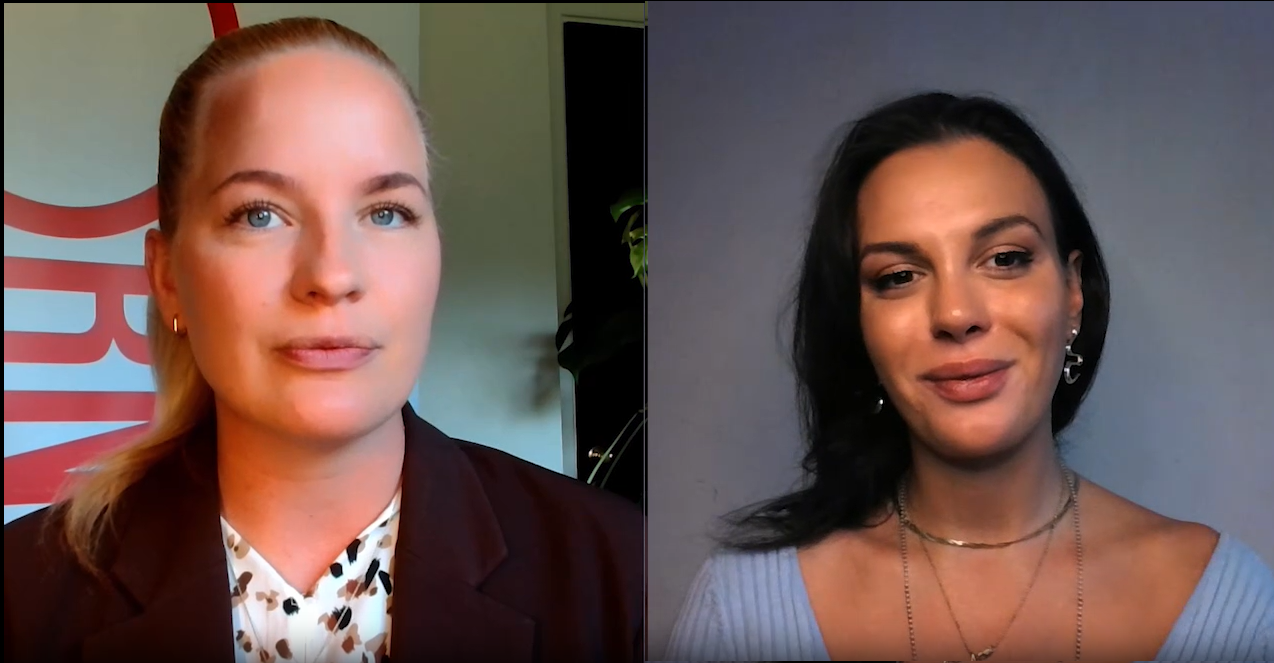Ollie Smith: We all hear talk of the carbon transition at the moment, but what does it mean in practice and in particular for your portfolio? Joining me to discuss three stock picks for this topic is Tal Lomnitzer, senior investment manager in Janus Henderson's Global Natural Resources team.
Tal, talk me through stock number one. What are we looking at?
Tal Lomnitzer: Let me start by saying that the stocks I've picked are all framed by decarbonisation. It's a lens through which we're doing a lot of stock picking as we see as a major thematic that's going to roll on for years – decades even – with $140 trillion of cumulative CapEx coming in order to decarbonise just the world's energy supply. We see a very long duration to this thematic.
The first stock that I've chosen is a company called Champion Iron. It's an iron ore producer. It's a $3 billion market cap. And the reason we like it is firstly because it produces amongst the highest-grade iron ore concentrate out there at 66.2%. It may not mean much to many people, but in practice, what it means is that producers of steel of which iron ore is an essential ingredient can reduce their own emissions by using it and improve their economics significantly.
Now, Champion happens to produce the lowest carbon footprint iron ore in the world, better than Rio, Anglo, BHP, Vale and Fortescue. That makes it very attractive to consumers of this iron ore. It's also a company which recently started production from an old mine called Bloom Lake and therefore it has some growth ahead of it as it embarks on phase two of that operation, which will be starting up this year.
So, it's got a nice catalyst coming this year alongside some additional catalysts that we like, specifically, the initiation of a capital return strategy, a feasibility study on an iron ore pelleting operation, or DRI feed as it's known, as well as a feasibility study on a potential new project called Kami, where we hope that they will bring in a partner to shoulder some of the burden on the CapEx there and allow the company to establish its first capital return policy to investors.
OS: Great. And stock number two – what's that?
TL: Stock number two, I'm going up in market cap size, is a $10 billion market cap company in the energy sector Darling Ingredients. We classify it as an energy stock because it's a producer of renewable diesel through its joint venture operation called Diamond Green, its partner being established refiner Valero.
Now, Diamond Green is actually classified as an agricultural producer because what it does historically is to collect, recycle and process animal residues and cooking oil fat, reused cooking oil. Renewable diesel is an essential part of the transition to a low carbon economy, because it's a direct drop in substitute for fossil fuel based diesel, but it comes from a circular economy perspective, i.e., it uses waste feedstocks to make the renewable diesel, which when you look at it looks like water as opposed to diesel, which looks a bit more like whiskey. Although I would caution no one to drink it, of course.
Renewable diesel will be needed because even though, for example, the UK is banning the sale of internal combustion engine vehicles from 2030, there is still going to be a fleet of cars that are going to be requiring diesel to drive, and this company can provide that. It trades on a great valuation currently around 7 times EBITDA, which we think could easily rerate to around 10 times EBITDA.
But the really exciting thing here is that what was a traditionally low-return business, collecting residues and turning them into products that go into the fertiliser, farmer or other industries, into a high-value product (renewable diesel) which means that there's going to be a step change in their return profile, a little bit like we saw with a company called Neste, which is a European-based producer of renewable diesel that morphed from a pure hydrocarbon business into a renewable diesel business.
The bump in returns there is very evident to see and lasted for quite a few years. Markets are now asking what's the next trick for Neste because feedstocks which go into their business are getting more expensive. Darling, of course, is integrated and has its own feedstock business, which also makes it the highest margin producer of renewable diesel out there and one that is competitively advantaged by virtue of having access to its own feedstocks.
OS: Wow. I mean, that was an absolutely exhaustive insight into that world. Glad to have literally chew the fat with you about that. And then, finally, on stock three, what's your final stock pick, Tal?
TL: The final stock I've chosen is in the nutrition sector. It's a company called DSM. It's the largest company I'm talking about today. We like it with its $30 billion market cap because it's in the life sciences area. It's a funny story here. DSM actually stands for Dutch State Mining Company. It was established in 1902 in order to mine coal for the Dutch government. But those mines all closed in the 1970s and the company has changed. It's unrecognisable today and is essentially a health, nutrition and sustainable living company.
There are three reasons to like it. The first is a digital platform called Sustell, which they will be offering to farmers in order to track the sequestration of carbon through their farming activities, potentially allowing them to quantify and then monetise the credits that might be generated through that activity.
The second reason we like it is after 10 years of research they are embarking on commercialisation of an omega-3 oil derived from algae. Omega-3 is very important as a feedstock for farmed fish, in particular salmon, and farmed fish are a very low carbon alternative protein to farmed beef, for example, which is about 25 kilograms of CO2 per 100 grams of beef, whereas farmed fish is around 3 to 4 equivalents. So, a dramatic step down. And producing this omega-3 improves the quality of the product and therefore we like it.
The third and perhaps most exciting reason to like DSM is a product called Bovaer, a methane inhibitor, which when fed to cows as ruminants when they chew the grass, digest it, produce methane. That methane is quite a pernicious, potent greenhouse gas. It's around 80 times more warming effect than carbon dioxide. And therefore, it's important to get control of methane emissions. In fact, at COP26 we saw countries pledging in a methane pledge to reduce methane emissions by 30% from a 2020 base. If that is achieved, it could avoid 0.3 degrees of global warming.
Now, we're already seeing consumer companies moving to this. Tyson in the US has committed to net-zero. Burger King are producing their first low methane Whopper. I'm not sure you can go run out and get it in the UK, but it's certainly a trial in US. And indeed, Nestlé who have committed to a 50% reduction in their carbon footprint, and 40% of their carbon footprint comes from dairy are also going to be needing a product like this. It's going to be an essential part of decarbonizing or reducing the greenhouse gas footprint of the food sector and is therefore very exciting. It's been licensed in Latin America, and we're expecting more licenses to follow with a number of companies picking up the product to feed to their cows.
OS: So, from fat to food to farms, that's amazing. Thank you very, very much indeed, Tal. Greatly appreciate your time today. For more videos on the carbon transition and investment experts' top stock picks, please check out Morningstar.co.uk. Until next time, I've been Ollie Smith for Morningstar.




























